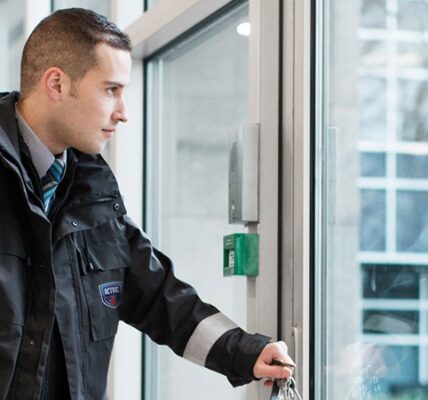Customer service skills are often associated with frontline employees who interact directly with customers. However, in the realm of retail security, these skills are equally crucial for security guards. Beyond their primary role of maintaining safety and preventing theft, retail security guards often serve as the first point of contact for customers entering a store. As such, their ability to provide excellent customer service can significantly impact the overall shopping experience and contribute to a positive perception of the retail establishment. In this article, we’ll delve into the importance of customer service skills for retail security guards and explore how these skills enhance their effectiveness in safeguarding retail environments.
Understanding the Role of Retail Security Guards
Before diving into the significance of customer service skills for retail security guards, it’s essential to understand the multifaceted role these professionals play in a retail setting. Retail security guards are responsible for maintaining the safety and security of the store, its customers, and its assets. They patrol the premises, monitor surveillance systems, respond to incidents, and enforce store policies and procedures. Additionally, they often assist with tasks such as access control, crowd management, and emergency response. While their primary focus is on security, retail security guards also interact with customers on a regular basis, making customer service skills an integral part of their job.
The Importance of Customer Service Skills
1. Enhancing the Shopping Experience
Retail security guards are often the first point of contact for customers entering a store. A friendly greeting, a warm smile, and a helpful demeanor can go a long way in making customers feel welcome and valued. By exhibiting strong customer service skills, security guards contribute to a positive shopping experience, which can lead to increased customer satisfaction and loyalty.
2. Building Trust and Rapport
Customers are more likely to trust and cooperate with security personnel who demonstrate professionalism, approachability, and empathy. By building rapport with customers through effective communication and interpersonal skills, security guards can create a sense of trust and mutual respect. This trust is essential for fostering a safe and secure shopping environment where customers feel comfortable and supported.
3. De-Escalating Tense Situations
Conflict and disputes can arise in retail settings for various reasons, including disagreements between customers, shoplifting incidents, or misunderstandings. Loss prevention security guards trained in de-escalation techniques can effectively diffuse tense situations, prevent escalation into more serious incidents, and preserve the peace within the store. By calmly and respectfully addressing customer concerns and grievances, security guards can resolve conflicts and maintain a positive atmosphere.
4. Providing Assistance and Guidance
Beyond their security duties, retail security guards often assist customers with directions, inquiries, or requests for assistance. Whether it’s helping a customer locate a specific product, providing information about store policies, or offering assistance to elderly or disabled customers, security guards play a valuable role in enhancing the overall customer experience. Their willingness to help and their knowledge of the store layout and services contribute to a seamless and enjoyable shopping experience.
5. Acting as Ambassadors for the Store
Security guards are not just enforcers of rules; they also represent the values and image of the retail establishment they serve. By embodying professionalism, courtesy, and integrity in their interactions with customers, security guards become ambassadors for the store. Their positive demeanor and helpful attitude leave a lasting impression on customers, reinforcing the store’s reputation and brand identity.
Practical Applications of Customer Service Skills for Retail Security Guards
1. Greeting Customers
Retail security guards should greet customers warmly as they enter the store, acknowledging their presence and making them feel welcome.
2. Assisting Customers
Security guards should be ready to assist customers with inquiries, directions, or any other assistance they may need during their shopping experience.
3. Active Listening
Security guards should listen attentively to customer concerns, complaints, or requests, demonstrating empathy and understanding.
4. Effective Communication
Security guards should communicate clearly and professionally with customers, using appropriate language and tone.
5. Conflict Resolution
Security guards should use conflict resolution techniques to address customer complaints or disputes, remaining calm and composed.
In conclusion, customer service skills are essential for retail security guards Melbourne, as they contribute to a positive shopping experience, build trust and rapport with customers, and enhance the overall safety and security of the retail environment. By exhibiting professionalism, approachability, and empathy, security guards can create a welcoming atmosphere, de-escalate tense situations, and provide valuable assistance to customers. Investing in customer service training for retail security guards not only improves their effectiveness in safeguarding retail establishments but also strengthens the relationship between the store and its customers, ultimately leading to increased satisfaction and loyalty.





